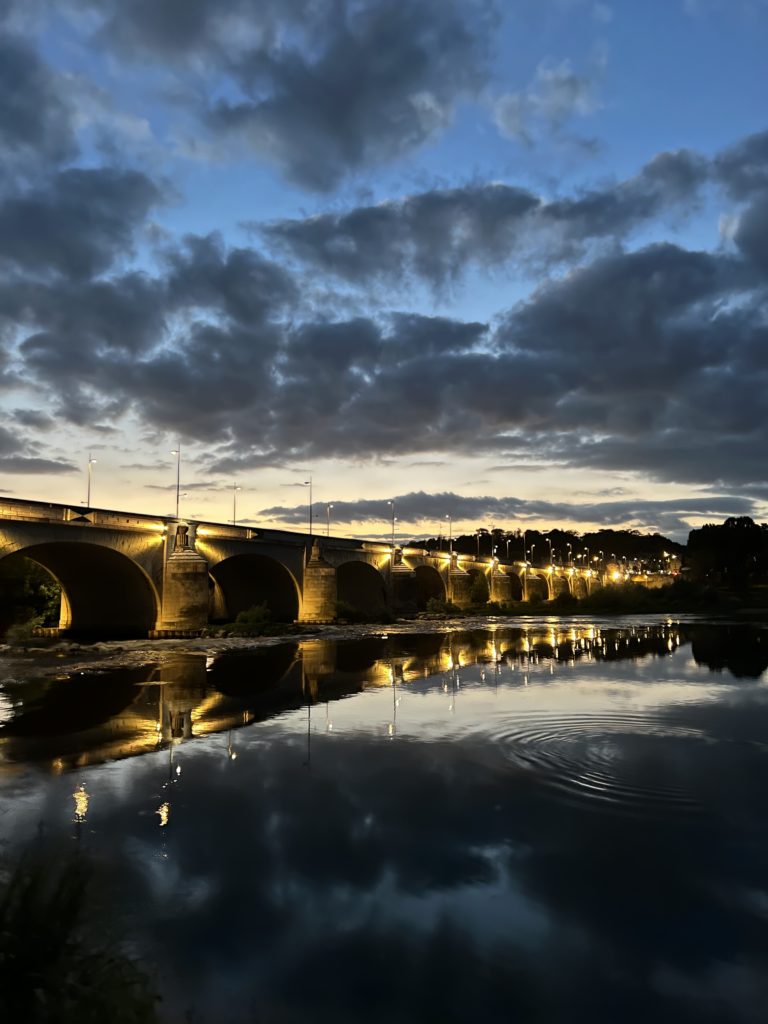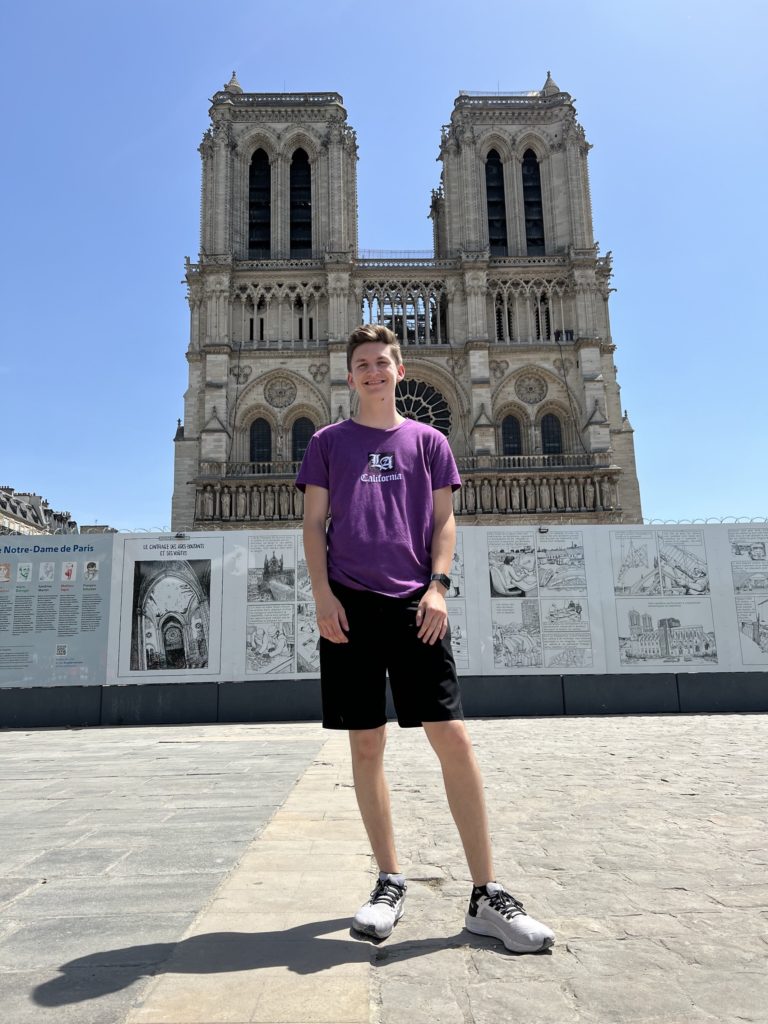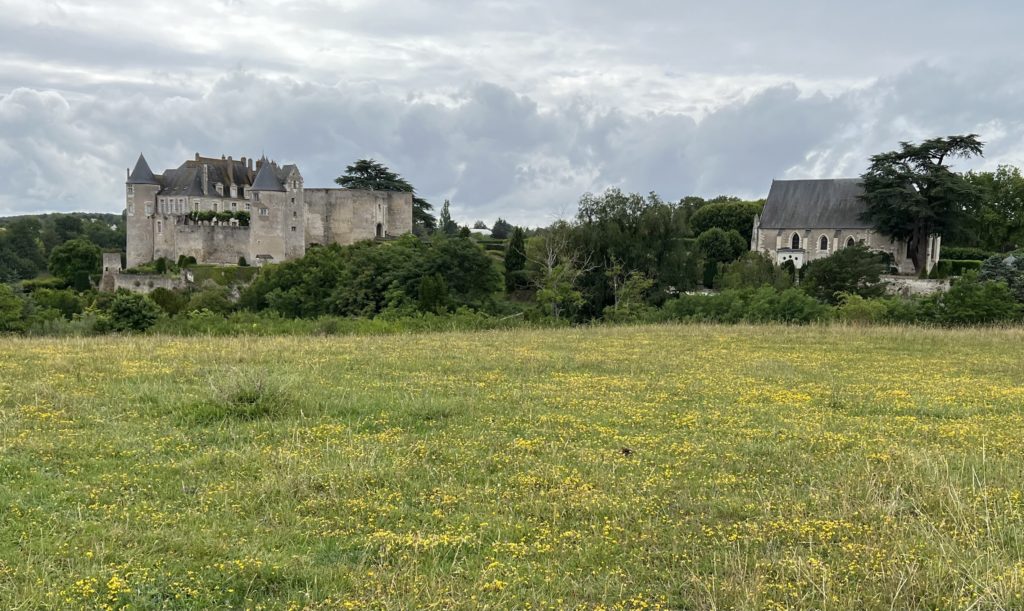Bonjour!
As of my writing this post, I arrived in Tours about three weeks ago, and the time has flown by! I can’t believe I’m already over halfway done with my stay here. For this post, I’d like to reflect a bit on my experiences here so far, and talk about some words I’ve picked up as well.
My first week here was fun, but was also certainly a struggle. My speaking skills were a little rustier than I’d hoped at first, and I very quickly learned the ways to say “Can you repeat that?” or “How do you say this?” in French. I definitely feel like I’ve improved, though, in the time that I’ve been here, and I’m pretty comfortable talking with my host family in French at the dinner table now. Speaking of my host family, I feel so lucky to have been placed with the family I’m with. They’ve been incredibly kind to me and have really helped me to speak French more rapidly and accurately. They’ve even taken me to some cultural events here in Tours, so I feel like I’ve had some great opportunities to experience French life with them.
The Institut de Touraine has also provided some great experiences as well. My class so far has been enjoyable and helpful. Not only have we learned about the traditional grammar and vocabulary of French, but our teacher also made sure to teach us some practical French phrases and words as well–we even spent an entire day just on slang! The people at the Institut are incredibly kind and welcoming, and it’s a great opportunity to meet a lot of people. The Institut itself is somewhat fluid in the students attending it: the students choose the weeks they want to start and when they want to leave, so it’s common to befriend people leaving in a week, or meet someone new halfway through your stay there. It certainly opens the door to get to know a great number of people! The Institut also offers excursions on Wednesdays and Saturdays to historical sites in France, which have been a nice break from the classes for me. So far, I’ve been able to go to Amboise (a castle on a hill near Tours) and Clos Lucé, the former house of Leonardo da Vinci.
I’ll wrap up this blog post by providing some of the “practical” or “slang” terms I’ve learned so far from my classes, my host family, and my experiences here.
En fait (in fact): This phrase confused me for the longest time, because I kept mishearing it as “on fait,” which roughly translates to “we do” or “we make.” My teacher and my host family kept using this as a kind of interjection within many of their sentences, almost similarly to how people in the United States use “like” very often when they speak. I’ve heard this phrase from most people I’ve spoken to, so it was quite helpful to get that misconception cleared up! I’ve started trying to use this phrase in more sentences while I’m speaking French.
Dégoûtant vs. Dégueulasse (disgusting): These two words both mean “disgusting,” but what makes them different is when you’re supposed to use them. Dégoûtant is a more formal version, while dégueulasse is more familial. There are many words that have familial variants, but this one was the most interesting to me because “disgusting” isn’t really a word that I’d think would need a familial variant. Our teacher taught us the difference between these two words. I haven’t really heard dégoûtant used, but I’ve heard my family use dégueulasse pretty often, especially in regards to food (par exemple, “l’escargot est dégueulasse”).
Merde! (Good luck!): The primary meaning of “merde” when used as a noun is the English equivalent of “the ‘s’ word” (it’s a “gros mot,” or curse word), but that’s not the meaning I’d like to discuss. That context is important because I was really surprised when the daughters of my host family were saying “Merde!” to each other (most of whom are elementary schoolers) before their school play, and the parents were nodding along and saying it with them. This word, when used as an interjection, is used commonly in theater as a way of saying “Good luck!”. According to my host family, it’s bad luck to wish someone good luck in theater by actually saying good luck (“Bonne chance!”), so they say “Merde!” instead before they act in a play. It’s similar to the English equivalent of “Break a leg!”. I don’t think I’ll be saying this too much, though, because of its other meaning and because I’m not exactly a trained theater actor!
Finally, I’ll add some pictures of my first few weeks here. Thanks for reading!


